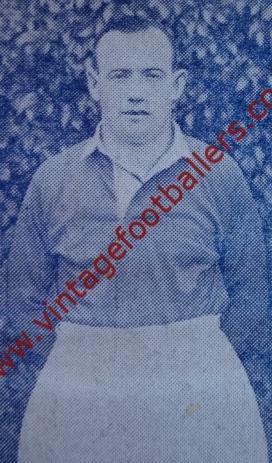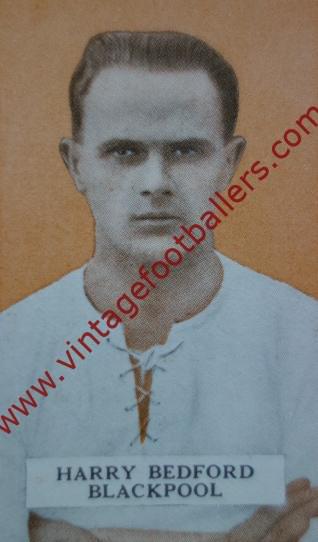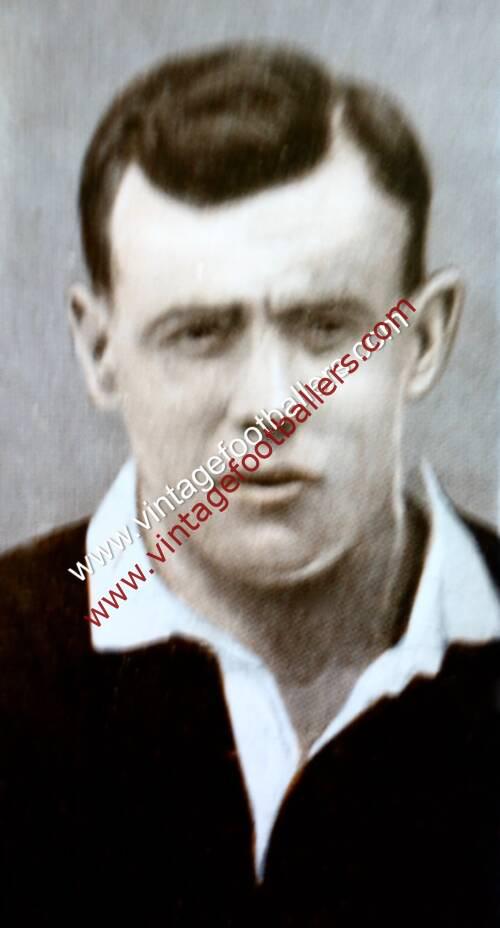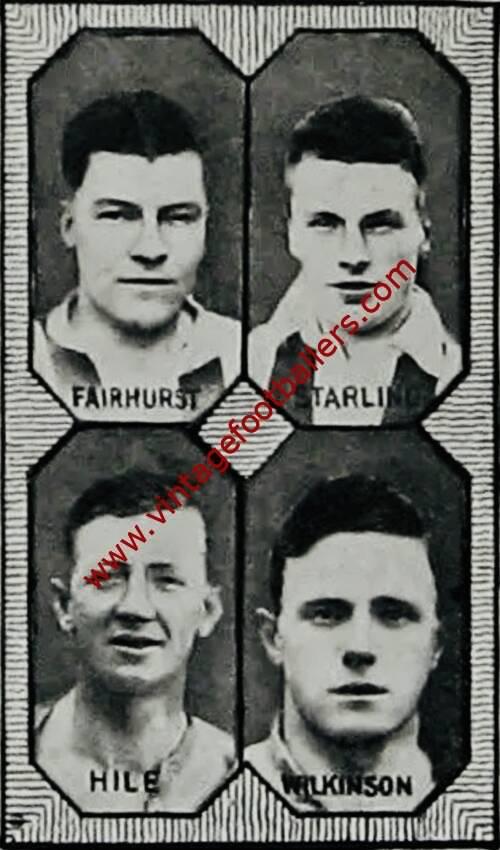Please choose your photo size from the drop down menu below.
If you wish your photo to be framed please select Yes.
Note: 16″x 20″not available in a frame.
Images can also be added to accessories. To order please follow these links
£8.95 – £49.95
Please choose your photo size from the drop down menu below.
If you wish your photo to be framed please select Yes.
Note: 16″x 20″not available in a frame.
Images can also be added to accessories. To order please follow these links
Dumfries born left back Bobby Ancell’s football career began with local side Mid-Annandale, from where he moved to St Mirren in February 1930. He was a stylish, intelligent full back. Ancell stayed with the Paisley club for six years where the best league finishes were fifth in 1932 and seventh in 1933. In 1934 he played for St Mirren in a Scottish Cup Final defeat against Rangers in front of a crowd of 113,430. However the team was in decline and was relegated in 1935. This was the only relegation of Ancell’s career as either player or manager. The drop of a division was short lived though and promotion straight back up followed the season after.
Ancell was signed by Newcastle United for a fee of £2,750 in August 1936 after 210 appearances for The Buddies, making his Football League debut against Barnsley the same month. Within months of joining Newcastle, Ancell received international recognition. He made his Scotland debut in a 3-1 victory over Ireland at Windsor Park, Belfast in October 1936. He second and final cap was won ins a 2-1 defeat against Wales at Dens Park in December 1936. Ancell received a third, unofficial cap against England in a wartime fixture played at Newcastle’s St. James’ Park in December 1939. His Newcastle career continued until the outbreak of the Second World War, and he was an ever present in their 1938-39 campaign, scoring once in 105 appearances for The Magpies.
He returned north upon the outbreak of World War Two, Ancell served as a PT instructor during the War as many players did. Guesting for numerous teams before joining Dundee in 1944, he had a spell as coach to the Norwegian army. Ancell helped Dundee lift the Second Division Championship in 1946-47. Their first season back in the top flight ended in fourth spot.
In January 1949 he left the Dark Blues after 58 appearances to join a side managed by a fellow native of Dumfries, Dave Halliday’s Aberdeen, for whom he had guested in wartime football (making 72 wartime appearances), as player coach. Ancell played 16 times for Aberdeen before he returned to Dundee play six more games the season after, retiring from playing in 1950.
Ancell then turned his hand to management in 1950 with Berwick Rangers then of the East of Scotland League turning down an offer from a Dunfermline Athletic making headlines from board room disputes. Ancell was then approached by Dunfermline again in 1952 and with a completely new set of directors running the club, Ancell accepted. From his first to last season in management, not once did his side finish a season having been fighting for divisional survival.
The Pars had been without a manager during the previous season and, having released no fewer than eighteen players at the end of it, Ancell had to rebuild the squad with very little money. The upheaval led to a mediocre season but Ancell was happy to develop young talent and shape them into the kind of players he wanted. One of his first signings was 17 year-old Jimmy Millar. The Pars improved in all three seasons under Ancell and achieved promotion to the First Division in 1955 after an absence of eighteen years. However Ancell left for elsewhere.
Motherwell was Ancell’s next port of call in 1955 where he appointed ex Dundee teammate Reuben Bennett to his training staff. At Fir Park, he was able to put his purist principles into practice and developed a dynamic young side known as the ‘Ancell Babes’. Under his guidance, no fewer than eight players gained international recognition featuring players like Ian St John, Charlie Aitken and Willie Hunter. The club’s best finish in Ancell’s tenure was third place in 1959 followed by finishes in fifth spot in the two subsequent seasons.
Ancell next rejoined former club Dundee where his best finish was sixth in 1967. He took Dundee to an autumn 1967 Scottish League Cup Final against the previous season’s European Cup winners, Celtic. Ancell’s team scored three times at Hampden Park in Celtic’s native Glasgow but still lost out 5–3. In the 1967-68 Inter-Cities Fairs CupDundee eliminated opposition from Netherlands, Belgium and Switzerland to meet Leeds United in the semi final. After a 1-1 draw at Dens, a 1-0 second leg win took Leeds through on their way to lifting the trophy. He resigned as manager later in 1968. After a year working as reserve team coach at Dens Park, he acted for Nottingham Forest in a scouting role before finally retiring from the game
| Weight | 0.25 kg |
|---|



